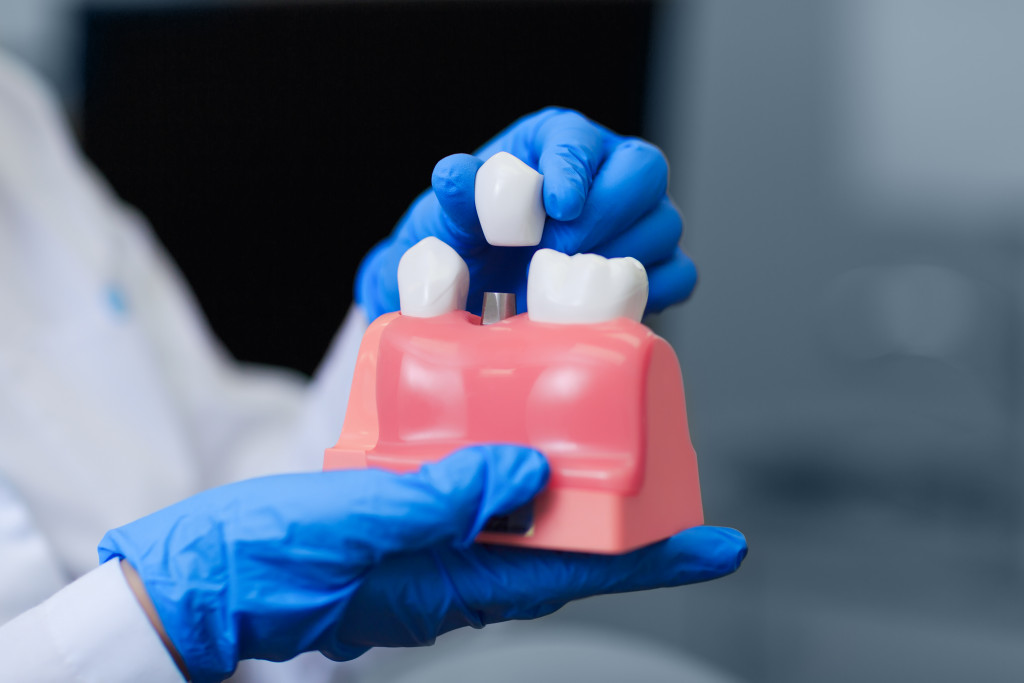- Maintain a disciplined oral hygiene routine, brush and floss regularly, and change your toothbrush every three to four months.
- Limit the intake of sugary foods and beverages in your diet and ensure a balanced diet promoting oral health.
- Avoid harmful habits like smoking and excessive alcohol consumption, and address issues like teeth grinding.
- Seek professional dental treatments for severe tooth decay, including fillings, root canals, or dental crowns.
- If tooth loss occurs due to severe decay, consider teeth replacements like dental implants, bridges, or dentures.
Dealing with severe tooth decay can be a challenging and painful experience. It not only affects your oral health but also impacts your overall well-being. However, with the right approach and care, you can manage and alleviate the effects of severe tooth decay. This guide will provide five essential tips to help you effectively deal with severe tooth decay.
1. Maintaining a Proper Oral Hygiene Routine
Establishing and adhering to a diligent oral hygiene regimen is paramount when managing severe tooth decay.
Here are some tips to maintain proper oral hygiene:
The Role of Diet in Oral Health
Diet plays a pivotal role in maintaining oral health. A balanced diet of fruits, vegetables, lean proteins, and whole grains can help stave off dental problems. Foods high in sugars and carbohydrates can encourage bacteria growth, forming plaque. Limit such food and beverage intake and rinse your mouth with water after meals to mitigate their impact.
Understanding the Impact of Smoking and Alcohol
Smoking and excessive alcohol consumption can severely impact oral health. Smoking can lead to teeth discoloration, gum disease, tooth loss, and, in severe cases, mouth cancer. Alcohol, particularly when consumed excessively, can erode the protective enamel layer, making teeth more susceptible to decay. Therefore, moderation in consumption or complete cessation of these habits is recommended.
Importance of Changing Your Toothbrush Regularly
An often disregarded but vital element of maintaining oral hygiene is regularly replacing your toothbrush. It is recommended to change your toothbrush every three to four months or even sooner if you notice frayed bristles. Worn-out toothbrushes are less effective at cleaning teeth and can harbor harmful bacteria, undermining oral health efforts.
Dealing with Oral Hygiene Challenges
Despite maintaining a consistent oral hygiene routine, some individuals may encounter specific challenges, such as sensitive teeth or bad breath. In such cases, consulting with your dentist to identify potential underlying issues and receive tailored advice and treatment is important.
2. Making Healthy Dietary Choices
Your diet plays a significant role in managing severe tooth decay. Limiting your intake of sugary and acidic foods and beverages can help prevent further damage to your teeth. These substances can erode tooth enamel and contribute to the progression of decay. Opt for a balanced diet rich in fruits, vegetables, lean proteins, and whole grains. These foods contain essential nutrients that promote oral health, such as calcium, vitamin D, and phosphorus.
Drinking plenty of water throughout the day is also beneficial for maintaining oral health. Water helps wash away food particles and keeps your mouth hydrated, reducing the risk of decay. Avoid frequent snacking or sipping sugary drinks throughout the day, as this exposes your teeth to prolonged acid attacks.
3. Adopting Good Oral Habits
In addition to maintaining a proper oral hygiene routine, good oral habits can significantly help manage severe tooth decay. Avoid habits such as smoking and chewing tobacco, as they stain your teeth and increase the risk of gum disease and oral cancer. Limit your alcohol consumption, as excessive alcohol intake can lead to dry mouth, contributing to tooth decay.
If you grind or clench your teeth, known as bruxism, it is important to address this issue. Grinding can wear down your teeth and make them more susceptible to decay. Talk to your dentist about getting a custom-fitted nightguard to protect your teeth while you sleep.
4. Seeking Professional Treatment Options
When dealing with severe tooth decay, professional treatment options are often necessary. Depending on the extent of the decay, your dentist may recommend procedures such as fillings, root canals, or dental crowns. Sometimes, tooth extraction may be necessary if the decay is too advanced to save the tooth.
It is important to follow your dentist’s recommendations and undergo any necessary treatment promptly. Ignoring severe tooth decay can lead to further complications, including infections and abscesses, which can be more painful and expensive.
5. Considering Teeth Replacements
Various tooth replacement options are available if a tooth is lost due to severe decay. Investing in durable dental implants offers the most natural and durable solution for missing teeth. The implant is made of titanium and placed directly into your jawbone, offering superior strength and stability compared to other methods such as bridges or dentures.
Dental implants can also prevent bone loss in the jaw, which often occurs after tooth extraction. They help to preserve your facial structure, restoring your smile and confidence.
In Summary
Dealing with severe tooth decay requires a multifaceted approach that includes maintaining a proper oral hygiene routine, making healthy dietary choices, adopting good oral habits, seeking professional treatment when necessary, and considering teeth replacements. By following these tips, you can effectively manage severe tooth decay and improve your oral health. Early intervention and regular dental care are key to preventing further damage and maintaining a healthy smile.


